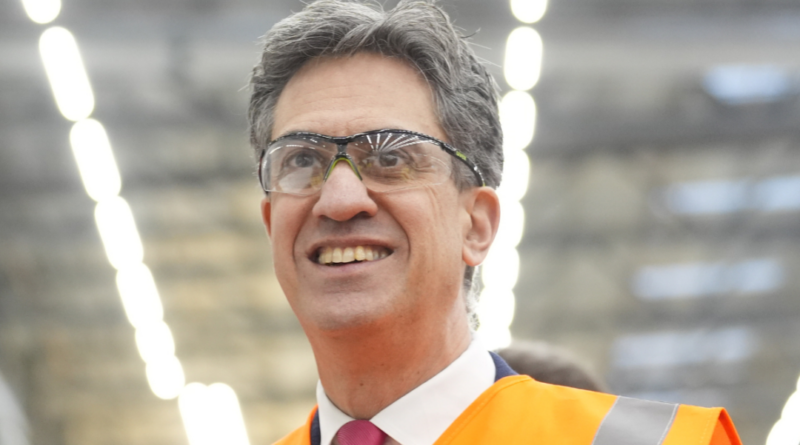Government Publishes Plan to Make 95 Percent of the Grid ‘Clean’ by 2030
The plans will also see decisions on planning permission sped up, enabling the swift construction of new infrastructure.
The government has published its plan to transition 95 percent of the UK’s energy supply sources to renewables by 2030.
The Department for Energy Security and Net Zero (DESNZ) said on Friday the measures will speed up the planning and decision-making process and lead to the building of more renewable energy sources like wind and solar.
DESNZ said delivering these plans will unlock £40 billion a year of mainly private investment in projects which will “reindustrialise” the country by creating more skilled jobs, including welders, engineers, and mechanics.
Energy Secretary Ed Miliband said that the UK needed to “decarbonise” its energy sources not only to fulfil the government’s legally-binding climate action agenda, but to develop greater energy independence in the face of the unpredictable global fossil fuel energy market.
Miliband called the plans “the most ambitious reforms to our energy system in generations. ”
He continued: “The era of clean electricity is about harnessing the power of Britain’s natural resources so we can protect working people from the ravages of global energy markets.
From 100 to 95 Percent
The release of the action plan comes after Prime Minister Sir Keir Starmer unveiled six “milestones” in his “plan for change” last week, which included his net zero ambitions.
Labour had previously promised a “zero-carbon electricity system” by 2030, but last week’s announcement saw that pledge diluted, with the UK instead to be “on track to at least 95 percent clean power by 2030.”
The change came after the government adopted the National Energy System Operator’s definition of the target as more than 95 percent renewable, with gas generation acting as a backup or strategic reserve.
Push Up Prices
While DESNZ has claimed the plans could see a lower cost in electricity and lower bills for consumers, the Conservatives have warned it will lead to higher energy costs.
Shadow energy secretary Claire Coutinho said: “Ed Miliband spent the election promising to cut energy bills by £300 by 2030, then took the same amount away from pensioners in poverty. Now his promise to cut bills by £300 is nowhere to be seen.”
Coutinho continued, “We need cheap, reliable energy – not even higher bills.”
Speaking to “BBC Breakfast” on Friday, Miliband defended the modelled predictions, saying that bills could be “£300 lower in a clean power system.”

Energy Security and Net Zero Secretary Ed Miliband during a visit to the Siemens Energy turbine factory to launch the clean power 2030 action plan, in Hull, England, on Dec. 13, 2024. Danny Lawson/PA Wire
The minister, however, could not guarantee whether bills would go up while investment is being made to reach the 2030 target, saying, “I can’t guarantee what’s going to happen to bills next month, because we’re in the grip of the international fossil fuel markets.”
Overriding Local Opposition
The government is also bringing back onshore wind, after the previous Conservative government had banned turbines from 2015 to 2024.
Vast amounts of infrastructure—such as more pylons and wind turbines—will be needed to be built to meet these targets, and will likely face challenges from local communities.
Miliband said that as energy secretary, he could have the ultimate say and bypass local opposition.
He told “BBC Breakfast” that this “will be a decision made by the secretary of state and local people will have a say, but these are nationally significant decisions.”
“My message to local people is, people should have a say. That’s really important. People should see a direct benefit if they host clean energy infrastructure, but we do need to build,” he added.
No Blackouts
While doing the media rounds on Friday morning, the minister was also questioned on BBC Radio 4 on whether the UK could face blackouts with a grid almost entirely powered by renewables, when the sun isn’t shining or the wind doesn’t blow.
Miliband told the “Today” programme: “No. That’s why you have a strategic reserve of gas-fired power stations, why you have, for example, long-duration energy storage, why you have batteries, why you have nuclear.”
However, Conservative Party leader Kemi Badenoch criticised the government for not investing enough in nuclear, saying her party has a plan “based on energy security that was not going to be overly reliant on the weather.”
PA Media contributed to this report.




